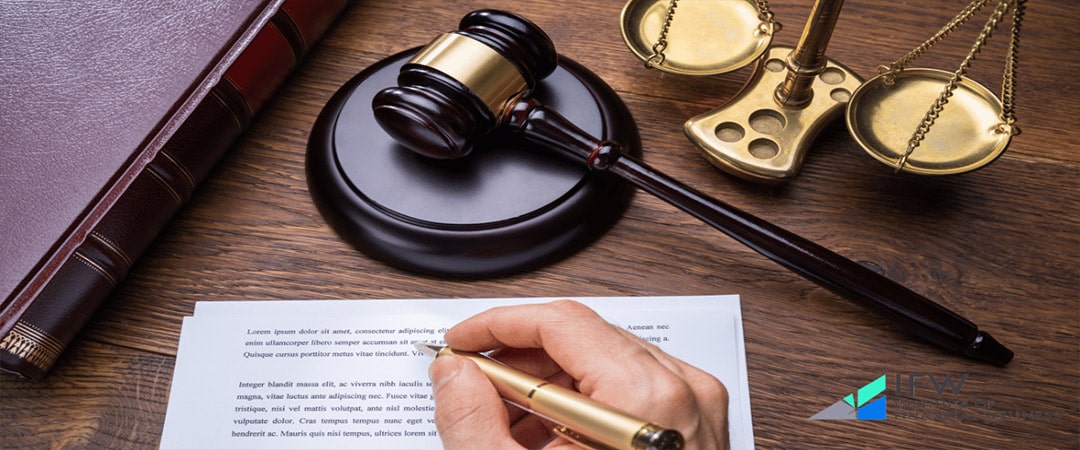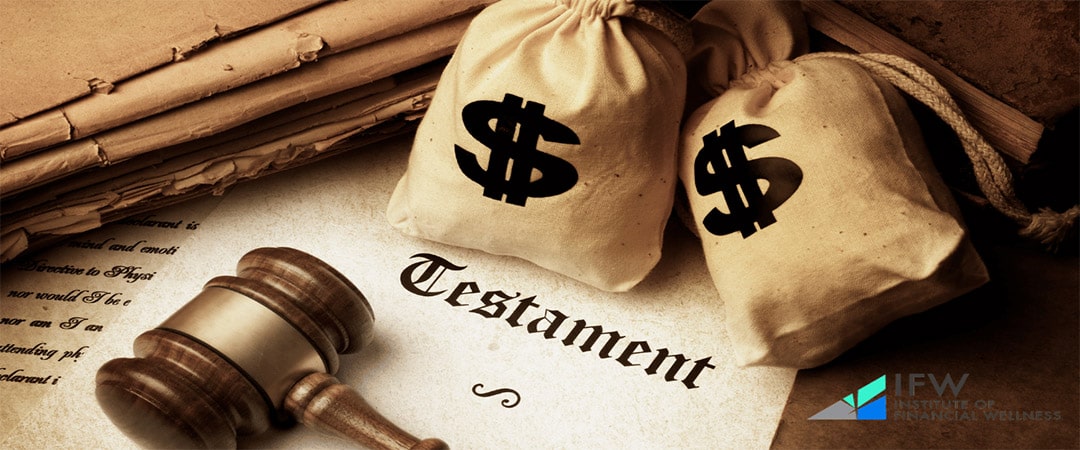Estate planning is an imperative factor for safeguarding your wealth and seeing to it that your assets are properly transitioned among those you love. As a retiree, this grants you the chance to develop or improve on your estate plan, accommodating any modifications in financial standing as well as family matters. Here’s how one can establish their own complete estate plan, which will both safeguard finances and secure care of close relatives after they have passed away.
Key Takeaways
- Estate planning is a comprehensive approach to financial management for retirees.
- Evaluate assets and liabilities, draft essential legal documents, choose beneficiaries and executors, address tax implications, and manage digital assets.
- Seek professional assistance from qualified advisors when dealing with complex estate planning matters.
Understanding the Importance of Estate Planning
A comprehensive estate plan should include health care directives, power of attorney, and designation of beneficiaries for assets such as money or property after death. Careful consideration in creating the document helps ensure that loved ones are taken care of by honoring the wishes expressed within it. Taxes related to the estate can also be addressed when setting up an effective plan before passing away.
Retirement and Estate Planning
Retirement serves as the perfect time to review or construct a new estate plan.
This includes accounting for tangible and intangible belongings, liabilities, and debts when mapping out an estate planning strategy. Establishing legal documents such as living wills, powers of attorney, life insurance policies, plus last will/testament are integral steps in ensuring that one’s property is managed according to desired wishes after death has occurred.
You can sign up for our free Retirement Roadmap Webinar to get started.
Evaluating Your Assets and Liabilities

Before beginning any legal estate planning process, it is necessary to have a thorough comprehension of all assets and liabilities. This includes tangible items like property or physical possessions, as well as investments or retirement accounts, which are intangible in nature. Be sure not to forget any outstanding debts that could potentially affect the estate plan you create.
Tangible Assets
In order to ensure that tangible assets – like real estate, cars, collectibles, and personal possessions – are managed according to your wishes in an estate plan or distribution of property upon death, it is important that a record be kept detailing their value and accompanying documentation. This will make the process much smoother for all those involved with the estate’s affairs. An accurate estimation must also be made on these items so they may adhere properly to one’s overall planned division of belongings when gone from this world.
Intangible Assets
It’s essential to account for all financial assets when planning your estate, such as stocks and bonds. A Roth IRA is a great way of transferring funds to descendants without incurring any taxation. Thus providing them with monetary security. Consolidating retirement accounts can also make administration simpler while saving both yourself and the heirs money in costs associated with it.
Debts and Liabilities
In order for your estate executor to handle financial matters and notify creditors, including those linked with medical bills, upon passing, it is necessary that you provide account numbers, the location of any signed contracts, as well as contact information for all firms holding debt. Keep track of these debts and liabilities accurately in order to make sure nothing slips through the cracks when it comes time to settle them. To help identify possible accounts overlooked, get a free credit report on yourself at least annually.
Drafting Essential Legal Documents

Having an accurate knowledge of your assets and liabilities, you can now proceed to put together the important legal documents for your estate plan. Preparing a last will and testament, as well as assigning someone with power of attorney, are key components in any thorough estate plan. These allow not only the protection of all possessions but also provide instructions regarding medical care when one is incapacitated, which could be administered by another person whom they appointed beforehand.
Last Will and Testament
A last will and testament is a legal document that clearly states your desires related to the inheritance of assets, as well as any potential guardianship for minor children. For it to be legally valid, you must sign it in front of two independent witnesses who also have to affix their signatures on the form. Notarization should take place.
Store an extra copy at home safely so that no one can gain access without permission.
Living Will
This is a legally binding document that outlines what kind of medical care an individual desires in the event they are unable to make decisions on their own; a living will can provide assurance that one’s wishes for their health and wellbeing will be carried out. This not only helps give them peace of mind but also spares family members from having difficult conversations during times when emotions run high.
It is important to specify all details regarding desired treatments, whether it’s pain management or organ donation, among other factors such as hospice care. Be specific about your preferences so you know that whatever happens, you have taken control over how your treatment plan should proceed, even if you become incapacitated at some point in life.
Power of Attorney
A power of attorney is a legal instrument that gives someone the authority to oversee your financial and medical matters if you become unable to make decisions yourself. There are two types: one for managing healthcare issues and another for dealing with finances. With this document in place, any resolutions made on your behalf will still be consistent with what you want while incapacitated.
Choosing Beneficiaries and Executors

Once the necessary legal documents are in order, you can designate your beneficiaries (the people/entities who will inherit assets upon passing) and an executor to manage any affairs concerning your estate. The role of this chosen individual is to ensure all directives regarding possessions listed within the estate are accurately fulfilled.
Selecting Beneficiaries
When choosing who should inherit your possessions, consider the monetary requirements of those dear to you and any special instructions for distribution that may be in place. It’s also essential to update accounts or policies with specific beneficiary designations. Be aware that certain accounts, such as inherited IRAs, have particular tax implications for beneficiaries receiving them.
Appointing an Executor
When selecting an executor, you should choose someone close to you who is able to act in an impartial manner. It’s essential that this person and you are open about their capability for taking on the job so potential issues can be avoided before they arise. To prevent any problems down the line, it might also be sensible to have a second nominated executor set out in your will. Just in case your primary one passes away or decides not to take up the role anymore.
Addressing Tax Implications

When it comes to estate planning, tax implications are a critical factor. By taking federal and state inheritance taxes into consideration, as well as other forms of taxation, one can minimize the amount they have to pay on their estate upon passing away or when transferring assets. Through thorough preparation in this field, you can make sure that your possessions will be distributed in line with your wishes without taxing them excessively for heirs.
Federal Estate Tax
The federal estate tax is a transfer of property levy imposed upon an individual’s death, which applies to estates that exceed certain monetary thresholds. For individuals, it currently stands at $11.7 million, and couples have up to $23.4 million exempt from taxation [1]. Knowing the details of this taxation system allows one to make informed decisions about their estate in order to lessen its effect on those inheriting wealth or possessions when they pass away. By taking into consideration these taxes, heirs may benefit more greatly than if not having planned ahead regarding funds left behind by the deceased person’s assets owned prior to death.
State Inheritance Taxes
To ensure successful planning and help keep the burden on your estate and those inheriting it to a minimum, you must be aware of all applicable taxation laws in your state. While some states require estates valued below federal exemption levels to pay an estate tax, others impose both inheritance taxes and additional levies upon beneficiaries from the same estate.
Other Tax Considerations
When creating an estate plan, understanding the associated tax implications is key in order to make educated decisions and minimize taxes for heirs. For instance, differences can be noted between Roth IRAs versus traditional IRAs when it comes to inheriting income from retirement accounts. As well as employing strategies such as trusts and charitable donations, which could help lessen any potential inheritance-related financial burden.
Managing Digital Assets and Online Accounts

Within an estate plan, it is imperative that digital assets and online accounts are managed. By creating a list of these items and safeguarding the associated login info, you can be sure they will become part of your estate when you pass away. Your designated trustee or executor would then have access to them after death.
Cataloging Digital Assets
When establishing an estate plan, it’s important to take into consideration all of your digital assets, such as online banking accounts, social media profiles, and files. Create a document that outlines these assets along with the access details for each one so they can be managed according to your wishes when you pass away.
Protecting Login Information
For keeping your digital assets and online accounts safe, it is essential to protect their login information. A helpful solution for this problem would be a password manager – allowing you to store all of these details in one secure place. It’s important to make arrangements so that someone trustworthy can access this information upon your death.
Seeking Professional Assistance

For intricate situations or when substantial resources are involved, enlisting the expertise of an estate planning attorney and/or financial planner to help construct a tailored estate plan can be invaluable. Such professionals can lead you through the entire process in order for your unique requirements and situation to be effectively met with regard to your overall estate plan.
When to Seek Professional Help
It is recommended that those with sizable estates, complicated family matters, or specialized taxation issues seek help from a qualified professional, such as an estate lawyer, for their estate planning. An attorney can provide competent direction and tax counsel to assist in the whole process of determining how your assets should be protected and handled according to your desired objectives, as well as avoiding estate planning mistakes.
Choosing the Right Advisor
Finding the right estate planning professional is critical to ensure an up-to-date, comprehensive plan that caters specifically to your needs. You should look for someone who holds a license and has experience with both estate law in your state and working as an adviser for other estates. Check references when selecting this person or organization. Their qualifications and track record are key indicators of success. Tax advisors can help you make sure all elements of the final strategy are covered – from complex legal details down to personal financial goals.
Institute of Financial Wellness

By tapping into the expertise of professionals at the Institute of Financial Wellness and creating an estate plan, you can protect your legacy for yourself and those close to you. Estate planning involves making preparations to ensure retirement security as well as overall financial wellness while also taking care of loved ones upon one’s passing.
Full Summary
Taking care of your estate plan is essential to ensure the smooth transition of assets and property to those close to you. Estate planning involves assessing financial resources, creating pertinent legal documents such as wills, picking out executors/beneficiaries, dealing with tax matters related to estate accounts or digital belongings, and employing professional guidance if needed. All these steps are necessary in securing a legacy for one’s loved ones even after they have passed away. Taking control today through careful consideration helps guarantee an optimal future outcome – procrastination should be avoided at all costs when it comes to making sure everything will go well for our estate posthumously!
Frequently Asked Questions
What makes it an estate?
At the death of a person, all their money and property – such as real estate, personal assets, bank accounts, investments, and insurance policies- come together to form an ‘estate’, which is essentially what denotes that individual’s net worth.
What is the first step in estate planning?
When it comes to estate planning, the initial task is to compile a list of your assets and liabilities. This can provide an overview of your current financial standing.
How do I organize my estate?
Organizing your estate should start by having a secure file to keep all the confidential paperwork separated into separate folders for each topic. Additionally, wills, trust documents, powers of attorney, and other documents should be kept in a fireproof metal box or file cabinet with your lawyer.
Also, create a checklist of important documents, their locations, and contact information of key associates. Finally, ensure all documents are up to date and easily accessible.
What are the 7 steps in the estate planning process?
Making an itemized list of assets, taking into account family needs, allocating beneficiaries and the way in which the estate will be distributed among them, maintaining documents safely, and amending one’s estate plan as needed. And consulting a lawyer for advice are all key elements of the estate planning process.
What is the difference between retirement planning and estate planning?
Retirement planning involves making a financial plan to guarantee that one’s income needs in retirement are fulfilled, while estate planning makes sure the owner of the assets distributes them correctly after death to their beneficiaries.




